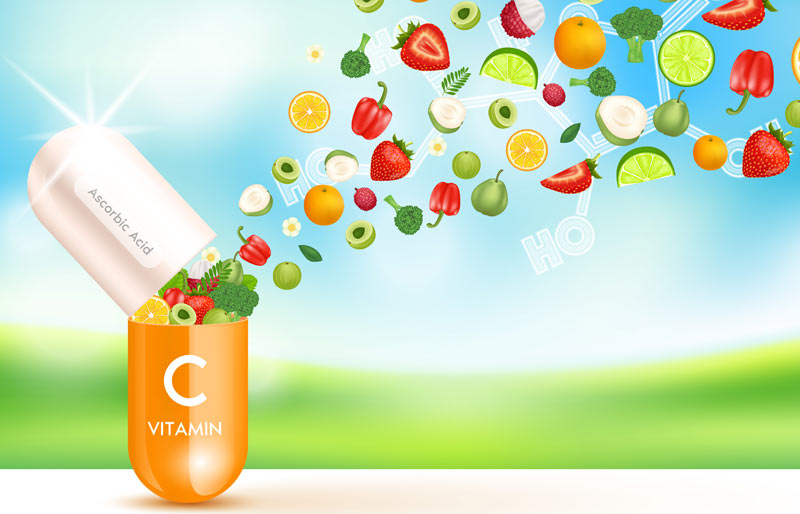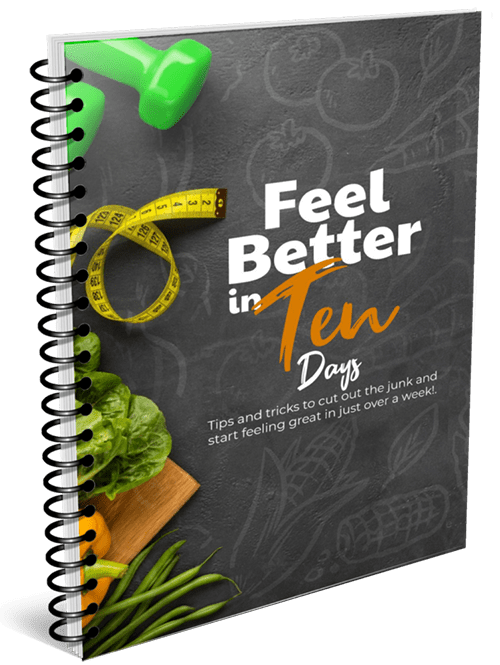Apart from increasing your fruit and vegetable intake, taking supplements is undoubtedly a great way to boost your body’s nutritional needs. This step, which you can apply one day at a time, can nourish your overall well-being for the long run. However, if you take supplements such as Vitamin C incorrectly, chances are you won’t notice much improvement.
You need to take vitamins in a particular way for the body to absorb them best. For example, it’s crucial to understand that the type, duration, frequency, and dose is important. This includes how you sync it with your eating and drinking schedule.
By now, you’re probably wondering, can you take Vitamin C on an empty stomach? Let’s find out more.
Table of Contents
Can You Take Vitamin C on an Empty Stomach?
Like other supplements, how and when you take Vitamin C determines its effectiveness.
Vitamin C is water-soluble and thus does not need fat to be completely absorbed and used by the body. Since it’s water-soluble, water is essential for its absorption. It’s possible to take the vitamin on an empty stomach. However, make sure to add a glass of water.
Technically, it’s not a must to take Vitamin C with food, but many products recommend you to do so. Taking Vitamin C on an empty stomach can bring complications such as minor GI tract irritation.
Those with sensitive digestive tracts could experience diarrhea, gas, and cramping.
Additional Information
You can take Vitamin C anytime you remember to do so. Most people take it with breakfast, and it’s okay.
Moreover, Vitamin C will not make you extra-energized or groggy. Therefore, you can take it with your lunch, dinner, or afternoon snack.
Supplementing With Vitamin C
The human body can’t produce Vitamin C, so we obtain it through supplementation or through nourishing foods that we eat. In addition, our bodies cannot store Vitamin C, and thus we have to be intentional with taking it or eating appropriate foods to meet our daily needs regularly.
You can find Vitamin C in many vegetables and fruits such as brussel sprouts, citrus fruits, kiwi, bell peppers, and many more. Vitamin C deficiencies are not prevalent in developed countries. However, most people don’t take enough Vitamin C to meet their daily nutritional needs.
For example, people with health complications such as illnesses, kidney issues, breastfeeding, pregnant women and smokers have high vitamin C needs. Vitamin C plays several great benefits to their bodies.
What is Vitamin C?
A common name for Vitamin C is ascorbic acid.
As previously mentioned, it’s water-soluble, so your body can’t store it. However, there are several places you can get Vitamin C, such as whole foods that you eat.
Vitamin C helps in the repair and growth of our body tissues. It also helps make collagen—an essential protein that makes the skin, ligaments, and more.
Furthermore, Vitamin C can also help heal wounds, maintain teeth and bones, and more.
It’s also an excellent antioxidant like beta-carotene, Vitamin E, and other different plant-based nutrients. Antioxidants protect the body against damages from free radicals, which usually affect the DNA. Buildups of free radicals increase the aging process and other health conditions such as heart disease, arthritis, and even cancer.
It’s pretty rare to have a severe Vitamin C deficiency. According to reports, several people have low Vitamin C levels. Cigarette smoking lowers the amount of Vitamin C in one’s body, and therefore smokers can have a deficiency.
Several signs of vitamin deficiency include gingivitis, hair-splitting, scaly skin, and bleeding gums. Severe Vitamin C deficiency is known as scurvy.
Having low Vitamin C levels is associated with several conditions such as stroke, atherosclerosis, and high blood pressure. To prevent developing these conditions, you should get a lot of Vitamin C by eating lots of vegetables and fruits. It may be beneficial to add Vitamin C supplements to your diet, if you’re not getting enough Vitamin C rich foods.
Here are some of the conditions that Vitamin C plays a role in protecting you.
High Blood Pressure
According to research, individuals that eat foods with high antioxidants like vitamins are at lower risk of getting the disease.
Foods rich in Vitamin C are great for your overall health and are better if you are at risk of getting the disease because they are high in antioxidants.
Health experts, such as physicians, recommend the DASH (Dietary Approaches to Stop Hypertension) treatment for people with HBP. The treatment involves taking fruits and vegetables that have high antioxidants levels.
Heart Disease
You should know that Vitamin C doesn’t reduce the heart damage risk or lower cholesterol levels, but it can help protect arteries against damage.
According to some studies, Vitamin C can slow down arteries’ hardening, known as atherosclerosis. It prevents the damage from harmful cholesterol that builds up in the arteries as plaque causes stroke or heart attack.
Plus, it ensures your arteries are flexible. People with low Vitamin C levels are at a higher risk of heart attack, artery disease, stroke, etc. Peripheral artery disease stems from atherosclerosis.
With this disease, you’ll experience pain when walking, and it’s referred to as intermittent claudication. Limited research using Vitamin C supplements will be of help.
It’s better to add Vitamin C to your diet by eating more fruits and vegetables. Fruits and vegetables also help you get other nutrients and antioxidants.
If you have low Vitamin C levels and can’t get enough through the food you eat, ask your doctor for the appropriate form of Vitamin C supplementation.
Cancer
According to research, foods rich in Vitamin C relate to lower cancer rates. They may also improve the quality of life for those with cancer too.
The fantastic thing is that these foods pack not only Vitamin C but, also several nutrients and antioxidants that are also beneficial. Hence, there can be other nutrients that reduce the cancer rate too.
Moreover, there is limited evidence and no guarantee that high Vitamin C amounts can help treat cancer.
Health experts are wary that high amounts of antioxidants from the supplements are not ideal because they can interfere with chemotherapy medications. If you have cancer or are undergoing treatment, consult your doctor before using supplements.
Asthma
Various studies aren’t clear regarding the relationship and effects of Vitamin C and asthma. However, somehow, people with asthma usually have low Vitamin C levels.
Therefore, several researchers think that having low Vitamin C might increase the risks of having asthma. According to other studies taking enough Vitamin C can reduce exercise-induced asthma symptoms.
These are some of the health conditions where Vitamin C can be helpful. However, Vitamin C can also be beneficial in many other ways, such as boosting immunity, maintaining healthy gums, improving vision, and more.
Dietary Sources
The best Vitamin C sources are fruits and vegetables, such as broccoli, tomatoes, kiwi, strawberries, watermelon, green peppers, papaya, citrus juices, and many more.
Other Available Forms of Vitamin C
The best Vitamin C sources are found in fruits and vegetables. That includes broccoli, tomatoes, strawberries, watermelon, green peppers, papaya, citrus juices, and many more.
There are also synthetic or natural Vitamin C supplements that you can purchase. They come in various forms, such as capsules, tablets, and chewables. These are the most popular forms. However, you can also get Vitamin C in liquid form, effervescent and powdered crystalline.
Conclusion
You can take vitamins (water-soluble) on an empty stomach. This way, your body will easily absorb and metabolize them.
The water-soluble vitamins, such as Vitamin C, should always be consumed with water to ease the breakdown process for absorption and reduce the risk of possible GI side effects.
Want to Work Together?
Lasting health and happiness takes more than just supplying your body with the necessary nutrients and vitamins it needs. More than anything else, exerting effort and making the right decision on different aspects of your life will help support your personal wellness goals. Are you struggling to make good decisions? Are you a tired, overwhelmed, or stressed woman who’s beginning to experience negative health issues such as digestive problems, chronic inflammation, aging prematurely, and weight gain? After consistently putting in long hours and juggling too many priorities, are you desperate to make a change?
It’s easy to neglect personal wellness in exchange for what feels good and that never-ending to-do list. The thought of adding one more thing to your list – wellness – may even tip the scale. Take the guesswork out of the individual steps needed to find balance and optimal health and let the Green Balanced Gal Wellness Program lead the way. You are unique, your food and lifestyle choices should be too, and thankfully, the Green Balanced Gal approach to wellness is not a one-size-fits-all approach. Get started today with the coaching support you need to feel your very best – mind, body, and soul!
I want to guide you through taking back the balance and health in your life. I’d love to jump on a call with you to see how we can work together. Schedule a time here>>



